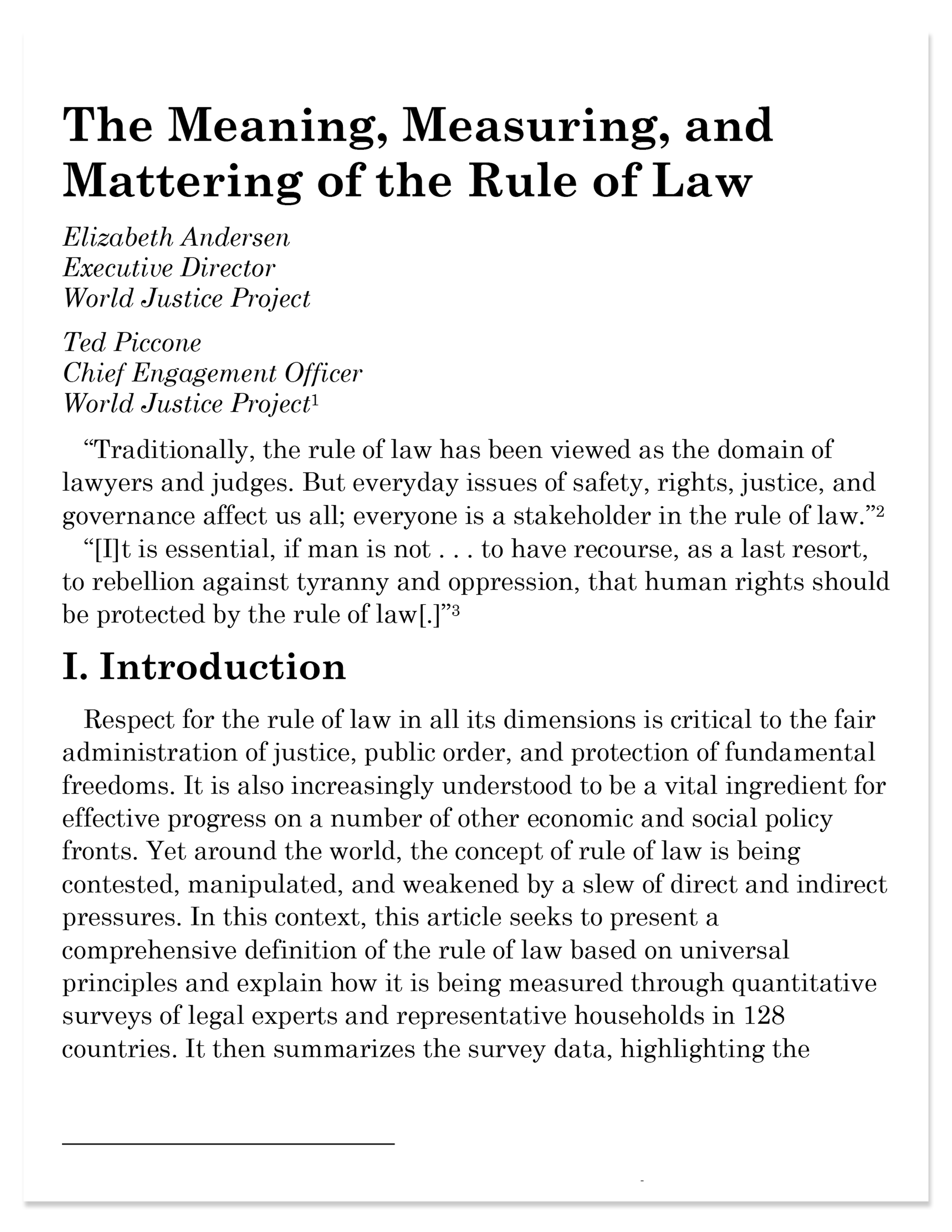
 Published in the November 2019 rule of law issue of the Department of Justice Journal of Federal Law and Practice, "The Meaning, Measuring, and Mattering of the Rule of Law" explores the WJP's eight defining rule of law factors measured in the WJP Rule of Law Index—and why the rule of law matters to policymakers and citizens. Learn more in the article introduction below and click through to read the full article co-authored by WJP Executive Director Elizabeth Andersen and WJP Chief Engagement Officer Ted Piccone.
Published in the November 2019 rule of law issue of the Department of Justice Journal of Federal Law and Practice, "The Meaning, Measuring, and Mattering of the Rule of Law" explores the WJP's eight defining rule of law factors measured in the WJP Rule of Law Index—and why the rule of law matters to policymakers and citizens. Learn more in the article introduction below and click through to read the full article co-authored by WJP Executive Director Elizabeth Andersen and WJP Chief Engagement Officer Ted Piccone.
Respect for the rule of law in all its dimensions is critical to the fair administration of justice, public order, and protection of fundamental freedoms. It is also increasingly understood to be a vital ingredient for effective progress on a number of other economic and social policy fronts. Yet around the world, the concept of rule of law is being contested, manipulated, and weakened by a slew of direct and indirect pressures.
In this context, this article seeks to present a comprehensive definition of the rule of law based on universal principles and explain how it is being measured through quantitative surveys of legal experts and representative households in 128 countries. It then summarizes the survey data, highlighting the United States’ record, and sets forth why it matters to policymakers and citizens.






